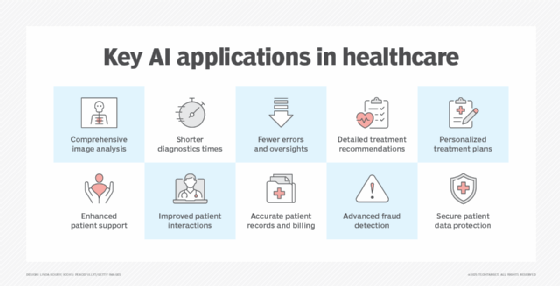What is the Joint Commission?
The Joint Commission is an independent, not-for-profit organization that administers voluntary accreditation and certification programs for healthcare organizations in the United States. Its mission is to continuously improve healthcare for the public by evaluating organizations and inspiring them to excel in providing safe and effective care.
Founded in 1951, the organization develops performance standards addressing core aspects of care delivery, including patient safety, medication management, infection prevention and control, care coordination and patient rights.
CMS recognition and licensing requirements
The Centers for Medicare & Medicaid Services (CMS) recognizes the Joint Commission as a deeming authority, meaning that hospitals and healthcare organizations accredited by the Joint Commission are automatically eligible to participate in the Medicare and Medicaid programs. While accreditation is voluntary, many state health departments require it as a condition for licensing or reimbursement, making it a de facto requirement for most facilities.
Organizations not accredited by the Joint Commission or another approved body might undergo direct CMS surveys to meet participation requirements.
Scope of accreditation
As of 2025, the Joint Commission accredits over 22,000 healthcare programs and organizations in the U.S.
- Hospital programs
-
- General medical and surgical hospitals.
- Critical access hospitals.
- Psychiatric and rehabilitation hospitals.
- Children's hospitals.
- Long-term acute care hospitals.
- Behavioral healthcare and human services
- Mental health treatment centers.
- Substance use treatment programs.
- Youth services and support facilities.
- Ambulatory healthcare
- Group practices and clinics.
- Ambulatory care surgery centers.
- Imaging centers.
- Urgent care centers.
- Home care
- Home health services.
- Hospice care.
- Home infusion therapy.
- Durable medical equipment providers.
- Nursing care centers
- Skilled nursing facilities (SNFs).
- Long-term care and assisted living facilities.
- Laboratory services
- Independent and hospital-based laboratories.
- Point-of-care testing labs.
- Other programs
- Telehealth services.
- Healthcare staffing services.
Joint Commission survey process and frequency
To maintain accreditation, organizations must undergo an on-site Joint Commission survey at least once every three years. Clinical laboratories are evaluated every two years. Surveys are often unannounced and tailored to each organization's services and risk profile.
The Joint Commission uses a tracer methodology, where surveyors trace the path of a patient through the organization to assess compliance with standards in real time. This helps identify strengths and gaps in care delivery.
How Joint Commission standards are developed
The Joint Commission standards are developed through collaboration with industry experts, healthcare professionals, consumers and government agencies. Draft standards are reviewed by advisory panels and open to public comment before approval by the Board of Commissioners.
These standards serve as a performance framework to help organizations continuously monitor and improve care quality and safety.

Joint Commission certification programs
In addition to accreditation, The Joint Commission offers certification for specific programs and services, including:
- Disease-Specific Care Certification.
- Advanced Certification in Stroke, Heart Failure, and Palliative Care.
- Primary and Comprehensive Stroke Center Certification.
- Healthcare Staffing Services Certification.
- Patient Blood Management Certification.
- Behavioral Health Home Certification.
- Medical Home Certification (for primary care and behavioral health).
These programs help healthcare organizations demonstrate clinical excellence in specialized areas.
History of the Joint Commission
The Joint Commission was founded in 1951 as the Joint Commission on Accreditation of Hospitals (JCAH). In 1953, JCAH began accrediting hospitals. The Social Security Amendments of 1965 passed by Congress stated that hospitals accredited by JCAH were permitted to participate in the Medicaid and Medicare programs. In 1987, it became the Joint Commission on Accreditation of Healthcare Organizations (JCAHO). In 2007, the JCAHO name was shortened to the Joint Commission.
Joint Commission governance and members
The Joint Commission's corporate members include the American College of Physicians, the American College of Surgeons, the American Dental Association, the American Hospital Association and the American Medical Association. The Board of Commissioners overseeing the organization includes a consumer advocate, administrators, employers, educators and quality experts, as well as doctors and nurses.
Joint Commission International (JCI)
Founded in 1994, Joint Commission International (JCI) is a global affiliate of the Joint Commission. JCI works with healthcare providers worldwide to improve quality and safety through accreditation, certification, consulting and education.
JCI has accredited organizations in more than 70 countries, including hospitals, primary care centers, ambulatory clinics and academic medical centers. It is especially recognized in regions seeking to align with international quality benchmarks.
Never events and sentinel events are both types of patient safety incidents; however, factors like prevention and reimbursement help distinguish between the two. Explore the differences between never events vs. sentinel events for assessing patient safety.






